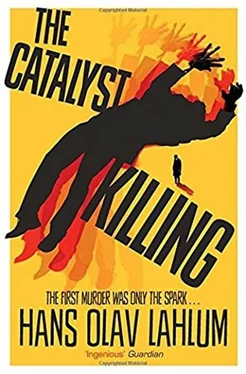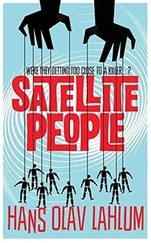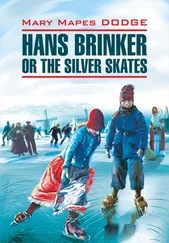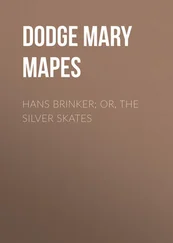I found Anders Pettersen more and more complex. His otherwise zealous political language every now and then slipped into almost pathetic romantic clichés. It happened again when he said that was all he had to tell me, and that he hoped that it would help me to find ‘my beloved’s murderer’.
Then he simply sat there, with his eyes suddenly swimming in tears.
I asked him to stay within the city boundaries and to keep himself available for further questioning, but was not sure whether he even heard me. In any case, I had no more questions for him at that moment. I left him sitting there by the coffee table like a statue, and found my own way out.
I strongly suspected that Anders Pettersen had escaped into a happy fantasy world where people were queuing up to buy his paintings, where the group was able to mobilize the masses under his leadership to revolution in Norway, and where Marie Morgenstierne was once again naked and wild in his bed. But I no longer suspected him of killing her. And I was even keener to know who had done it.
It was now midday, and the table was set for lunch at Patricia’s. She had not asked, and I had not told her, any more about Miriam Filtvedt Bentsen. Instead she listened in grave silence to my account of my meeting with Anders Pettersen.
‘So, did I get the answers you needed to finally uncover the murderer’s identity?’ I eventually asked.
Patricia’s face was grim as she finished her cup of coffee, but her answer was short and simple: ‘Yes.’
I looked at her, taken aback, as she poured another cup of coffee.
‘Eureka – I have the answer to what is almost a Greek tragedy. This case just gets worse and worse the clearer the answer becomes,’ she concluded.
I had to admit that this left me none the wiser. So I asked her straight out who was responsible for Marie Morgenstierne’s death.
‘The person I have always most feared it to be. There were so many possible alternatives along the way, but now only one realistic one remains. And of course it had to be the most depressing one.’
Patricia sighed again, and drained another cup of coffee in one go. Then she leaned over the table towards me.
‘The crucial question has always been not who killed her, but who or what did she see that so terrified her, as you yourself saw?’
Patricia’s voice was starting to break. As was my patience.
‘But who and what did she see? I have to know if we are going to close this case today.’
For a moment, Patricia pressed her serviette to her face. Then she found her voice again and pressed on.
‘A few yards behind her down the street, she saw what would be a harmless sight to anyone else: an elderly man with a stick. Marie Morgenstierne had feared that this man or his wife would kill her because they wrongly suspected her of killing their only son. Despite her newfound happiness, she was constantly on edge because she had not told them that she had a new lover, but they had discovered it all the same. So that was the situation when she suddenly saw a man behind her whom she had never seen at Smestad before, but whom she knew had killed before. He had himself told her about his experiences in the fight against the enemy during the Spanish Civil War. She saw a man who was old, but she knew perfectly well that he did not need a stick. And she saw a cunning murder weapon that he had perhaps shown her himself at some point: a walking stick that housed a salon rifle. Marie did not see anyone or anything else now: just that. And it is not surprising that she then started to run for her life.’
Patricia breathed out slowly, and then continued. I sat there staring at her in fascination.
‘Unfortunately, she started running a second too late to save herself. If she had started a second earlier, she and her unborn child – and the others who have been killed – might still be alive. And you would not have had to drive over to Grünerløkka now to arrest an old married couple who are no doubt devastated at having lost their only son so recently. The story might have been different and far happier if other coincidences had not happened, for example, if Mrs Reinhardt had not walked by when Anders and Marie were holding hands that summer day. Or if Mr Reinhardt had seen his missing son standing there only a few yards away on the evening he killed Marie.’
We sat and looked at each other in sombre silence. I realized that she was of course right. But I could not understand how I had failed to think of this possibility at an earlier stage myself.
I relived my painful encounter with the terrified woman on the Lijord Line seven days earlier. It struck me that the story might have been very different if I had had the sense to pull the emergency brake. It seemed highly unlikely that Patricia had not thought of this. And I was very grateful to her for not having mentioned it at all.
I said that it was a truly sad story, and that I would have to conclude it now by going to Grünerløkka.
Patricia gave a slight nod, and asked in a quiet voice if I would be needing her help any more.
I said that I realized the case had been very demanding for her, and that she no doubt wanted it to be over as soon as possible. I would, however, appreciate talking to her a little bit more once I had arrested the murderer, in order to fill in the final missing details.
She let out a heavy sigh, nodded in resignation and asked me to come back as quickly as possible. She said nothing more, but sat there in silence, waiting.
There was no great drama at Seilduk Street in Grünerløkka when I arrived there at a quarter past one. Arno Reinhardt was on his own when he opened the door this time. He said that his wife was grief-stricken, and had gone to lie down. I told him that we could talk without her for the moment.
He nodded gratefully and showed me into the living room. In a strange way, it felt like we both knew why I was there. As we walked down the hall, I noticed an old travel bag standing there, packed and ready.
I said that we now had information that meant we sadly had to question him again about his whereabouts on the day that Marie Morgenstierne was murdered.
He indicated that he understood.
I added that four police constables were now standing on duty outside the building, as was the case.
My eyes moved to the wall of photographs, and to the last picture of Marie Morgenstierne together with Falko and his parents, here in the flat. Arno Reinhardt followed my gaze.
‘I can always turn my back to that wall, but I can never get away from her. Not here, not in the other rooms, not out on the street,’ he began quietly. ‘I waited and waited. One day before he disappeared, Falko mentioned that he suspected that his fiancée was a mole. I couldn’t prove anything, but the idea that she was, and that she had something to do with his disappearance, took root. So I sneaked out and followed her, and saw her handing something over to a man who passed her on the street after one of their meetings. And still I hesitated. It was only when…’
His voice broke, and I had to finish the sentence for him.
‘It was only when your wife came home and told you that she had seen your son’s fiancée hand in hand with another man – your son’s friend, no less – that you were galvanized into action?’
He looked down, and said nothing.
I did not know what else to say. So in the end, I stated the obvious: that he should not have taken the law into his own hands. Slowly he raised his head, showing a bitter smile.
‘We communists have always had to take the law into our own hands, because the police have never done it for us. But I punished an innocent person. Even if the law grants me mercy because of my age, I will never be able to forgive myself. I could live with the fact that I had killed someone who was guilty. But then, just when I was overjoyed to see my son again, my world fell to pieces when I realized I had shot an innocent person.’
Читать дальше












